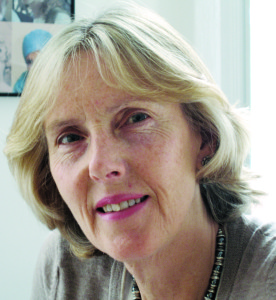 The Ashya King case has gone global, and in the UK is assuming Mid Staffordshire proportions. The law, as interpreted, would appear to have totally overlooked the best interests of a gravely ill child: to have parents who love and care for you at your side.
The Ashya King case has gone global, and in the UK is assuming Mid Staffordshire proportions. The law, as interpreted, would appear to have totally overlooked the best interests of a gravely ill child: to have parents who love and care for you at your side.
Amid the media hullabaloo, unfolding events, heated debate, and hasty responses, the seminal event: the “breakdown in communication” between the family and Southampton hospital staff, should prompt doctors everywhere to take a long, hard look at how they interact with patients and their families.
Doctors are advised that decisions about treatment and best management should be shared, and take account of the concerns and perspectives of patients and their carers. But it’s not easy. Every day, doctors debate and are confronted with dilemmas around what constitutes best practice and how to apply it to the patient in front of them. They also struggle to find the time—or lack the skill or motivation—to listen to patients, elicit essential information from them, and fully understand what matters to them.
Patients and their families are often frustrated by this. Most “get” that there are constraints under which doctors and public health systems work. But when the stakes are high, they will—and surely have the right to—seek other options in or outside their own country, and to expect their doctors to listen and discuss their findings and viewpoints sensitively, however well or ill informed they may be.
Ashya King’s father scoured the internet and challenged the Southampton doctors’ decisions. It’s a scenario that health professionals have got to get used to. Information is being democratised, and suggesting patients should not access it on the grounds that it may mislead them is absurd. The new reality for doctors, as the jargon puts it, is to “act as guide, not God,” and to avoid branding patients who do their own research as difficult.
Doctors will inevitably be placed in situations where they don’t know best and patients are repeatedly making this point. In a video clip from a recent medical meeting in Sweden (see below), one of The BMJ‘s patient panel members uses his own experience of learning about lifesaving new treatment from an online patient community to suggest that not Googling your condition may be bad for your health.
Such cases are exceptional, but they signal a sea change in the healthcare environment. The calls for the relationship between patients, families, and health professionals to become more equal are strong. Policy makers have heeded it and are promoting a move to partnership, but it’s still poorly realised on the shop floor.
When a frail relative of mine with dementia was moved to a care home a few months before he died, a new GP took him off medications that included an antidepressant. He went psychotic, was sedated, and was put back on medication. But a decision was made to section him. I suggested to the psychiatrist that time would swiftly resolve things and that sectioning him was not necessary, but to no avail. So I drove him to the designated secure mental unit, where he rapidly became his old sad gentle self, but was distressed to see how “ill and disturbed” his fellow patients were. Memories of his repeated phone calls “begging” me to get him out of the hospital (it took three weeks to find a new home) remain.
Another patient I am close to failed to achieve remission from his rheumatoid arthritis after months on first line disease modifying drugs. I “researched” access to biologicals. I discovered that prescribing rates for these expensive drugs vary markedly between trusts in a way that is not consistent with clinical “need.” Furthermore, I found that the National Institute for Health and Care Excellence’s eligibility criteria include a highly subjective measure: the degree of discomfort a patient expresses on squeezing inflamed joints.
Some doctors I talked to frankly admitted that they bent the rules if the clinical picture suggested a patient needed biologicals, but did not quite meet NICE criteria for them. They advised patients to stop being stoical and say “ow” when joints were pressed. This enabled them to inflate the composite disease activity score and meet the NICE threshold.
Armed with these insights, we asked the patient’s doctor to consider prescribing biologicals. The answer was no, and dialogue was not invited. Assessment in another unit resulted in instant agreement that biologicals were needed, and treatment soon started.
Patients know about variation in practice, which—thanks to the lead of John Wennberg—is no longer a closed book. They discuss it along with every other aspect of their condition and its treatment. Doctors who have grasped the potential of patients’ ability to access—and their enthusiasm for sharing—information through online communities are working collaboratively with them, to promote self management and improve the cost effectiveness of care.
But collaborative, participatory care is possible only if respect is mutual and communication good. Patients, families, and carers need and want to share their views, and the quality of their relationship with their doctors is of overwhelming importance to them.
Ashya King’s case raises many questions. Among them, what price should impeccable professional credentials command if a doctor can’t win the trust of patients and their families, and agree a way forward? New times demand new skills.
Tessa Richards is senior editor/patient partnership, The BMJ.